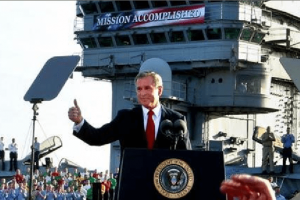
There’s been an interesting story in the sports world involving Chicago Cub slugger Kris Bryant that has been simmering for five years. Bryant was a highly-touted young rookie for the Cubs that season but they kept him in the minor leagues for two weeks starting the season. This denial means Bryant must wait until 2021 to be a free agent and sign an enormous contract, rather than doing so this year.
Bryant lost an arbitration case in which he argued the Cubs made their move solely to deny him a year of service while the Cubs argue the two weeks were necessary seasoning for Bryant before being called to the major league club. As is my way, let us dispense with all nonsense. The Cubs kept him in the minor leagues back in 2015 for the sole-purpose of getting an extra year out of him without paying free agent prices. The argument the Cubs put forward is a lie. This is not the subject of my blog today.
What I want to examine is the Libertarian ideology that people, or organizations, generally do what is in their best interest. It can be argued the Cubs did what was in their best interest by holding back Bryant for two weeks. They basically got his services for almost the entire season and gained an extra year by doing so. However, Bryant is angry about it and has refused all long-term contracts the Cubs offered him. He wants out because he feels they cheated him. That is clearly not in the interest of the Cubs.
My beloved St. Louis Cardinals have a history of not resorting to this particular methodology as a way to keep players under contract. Often times, but not always, the player eventually signs a long-term contract under reasonable terms with the Cardinals. It can be argued that the strategy employed by both the Cardinals and Cubs is in their best interest. This is a problem with Libertarian Ideology in regards to enlightened self-interest.
We don’t always know what is in our best interest in the long run. It is also clear what is in the best interest of one side is not always in the best interest of the other, in this case Bryant and the Cubs are at odds over the subject.
Sometimes people and organizations behave in self-destructive ways that are not in their own interest. Where does this leave a Libertarian such as myself?
I understand that enlightened self-interest isn’t a line that can easily drawn and that sometimes it is impossible to do so. The question for me is if the arbitration committee gets to make that decision. Do they get to say the Cubs acted illegally and grant Bryant free agency immediately?
Major League baseball and the player’s union came up with a system. The Cubs manipulated that system. Bryant is the victim. It was a crappy thing for the Cubs to do to him but they followed the agreed upon system and that is really all we have to make any final determinations. Can a better system be implemented? Likely. Proceed to do so.
Tom Liberman



